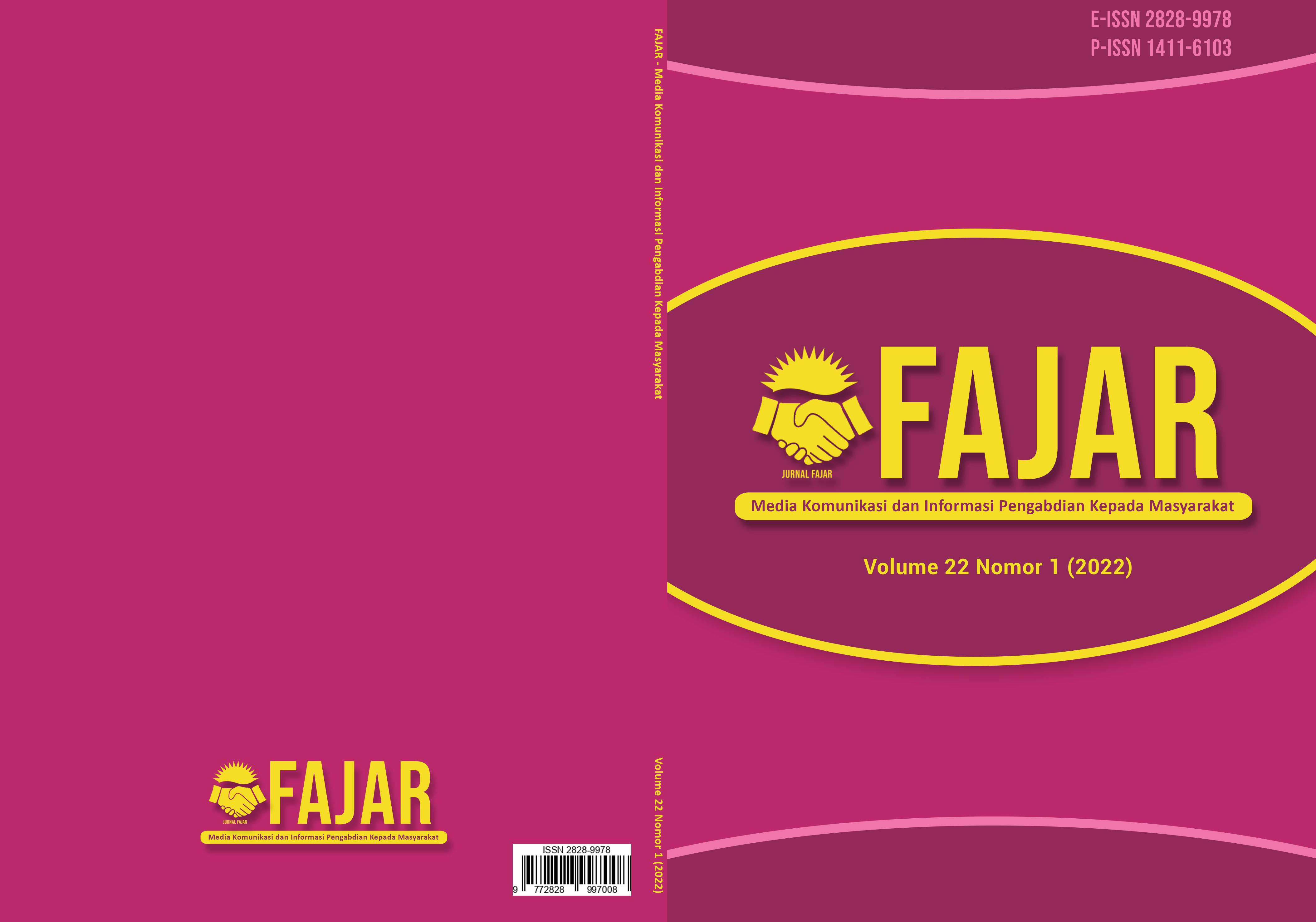PELATIHAN LITERASI KEUANGAN SYARIAH DALAM MENGHADAPI PANDEMI COVID 19 UNTUK PARA DAI DI BEKASI
DOI:
https://doi.org/10.15408/jf.v22i1.24359Keywords:
Literasi Keuangan Syariah, Dai, BekasiAbstract
With the predicate as a developing country, Indonesia has a tendency to lower economic growth than countries in the Southeast Asian region. This is due to several aspects, including the lack of understanding of the Indonesian people on financial literacy. Dai circles are identical community groups that have small incomes but have good Islamic knowledge. Dai has the potential to manage finances well. This service aims to provide financial training to preachers in Bekasi. By providing this training, it is hoped that the preachers will understand financial recording and management, how to access banking services, and how to use savings products and financing products. The service activity went well with an estimated 50 participants and the discussion was running enthusiastically. Participants experienced an increase in financial literacy knowledge.
Dengan predikat sebagai Negara berkembang, Indonesia memiliki pertumbuhan ekonomi cenderung lebih rendah dari pada negara negara di wilayah Asia Tenggara. Hal ini disebabkan oleh beberapa aspek, diantaranya adalah minimnya pemahaman masyarakat Indonesia terhadap literasi keuangan. Kalangan Dai merupakan kelompok masyarakat identik memiliki pendapatan kecil tetapi menguasai keilmuan keIslaman yang baik. Dai berpotensi untuk mengelola keuangan yang baik. Pengabdian ini bertujuan untuk memberikan pelatihan keuangan kepada para dai di Bekasi. Dengan memberikan pelatihan ini diharapkan para dai memahami pencatatan dan pengelolaan keuangan, bagaimana mengakses layanan perbankan, bagaimana menggunakan produk tabungan dan produk
Downloads
References
Baker, H.K., & Ricciardi, V., (2015). Understanding behavioral aspects of financial planning and investing. Journal of Financial Planning.
Saerang, I.S., & Maramis, J.B. (2017). Eksplorasi respon perencanaan dan pengelolaan keuangan keluarga. Journal Manajemen Bisnis dan Inovasi, Vol. 4 No. 2 Hal. 110-115.
Otoritas Jasa Keuangan, (2016). Perencanaan Keuangan, Seri Literasi Keuangan Perguruan Tinggi, Penerbit Otoritas Jasa Keuangan, Jakarta.
Nainggolan, Pahala. (2012). Manajemen Keuangan Lembaga Nirlaba. Yayasan Bina Integrasi Edukasi (YBIE).
Bere, S.M. (2016). Rendah, Tingkat Pemahaman Masyarakat terhadap Produk Keuangan. Diakses melalui http://bisniskeuangan.kompas.com/read/2018/03/29/74500526/Rendah.Tingkat.Pemahaman.Masyarakat.terhadap.Produk.Keuangan. Pada tanggal 14 Nopember 2017.
Lusardi, A, et.,al. (2010). Financial Literacy Among the Young, Journal of Consumer Affairs. 44 (2), pp 358-380.
Lusardi, A dan Mitchell, O.S. (2014), The Economic Importance of Financial Literacy: Theory and Evidence, Journal of Economic Litrature, 52, 5-44.
Tomaskova, H, et.al. (2011). Issues of Financial Literacy Education. Procedia-Social and Behavioral Sciences 28 (2011), 365-369.
Mendel, K., & Klein, L.S. (2009). The impact of financial literacy education on subsequent financial behavior, Journal of Financial Counseling and planning, Vol. 20: 1.
Haris, V. (2014). Tips for service healthy financial management skills, Fairfax. National Resourcescenter for healthy marriage and families, Available at: http://tinurl.com/tips-for-providers-fm-p.
Hilgert, M. A., Hogart, J.M., & Berly, S.G., (2003). Household connection between knowledge and behavior, Federal reserve Bulletin, 89, 309-322.
Johnson, E., & Sheraden, M., (2007). From financial literacy to financial capability among youth, Journal of sociology and social welfare, 34 (3), 119-146.
McCormick, M.H., (2009). The effectiveness of youth financial education: a review of the literature, Journal of financial counceling and planning, Vol. 20: 1.


